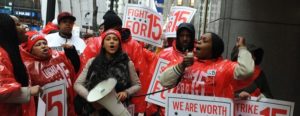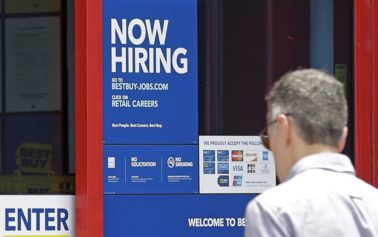
During the recession, which began in 2007, employers shed 8.8 million jobs; since it ended a few years ago, they have hired 8.9 million. But because the population has grown over that time, the unemployment rate has remained elevated.
With the addition of 192,000 jobs, according to the U.S. Labor Department, the unemployment rate remained at 6.7 percent. But an encouraging sign was that a half-million Americans began looking for work and most of them found jobs.
Despite the positive prospects for the short-term unemployed, recent reports have shown that the outlook is grimmer for those who have been unemployed more than six months. The 3.8 million Americans who have been out of work for more than six months face a much harder time than the short-term unemployed in finding new jobs, largely because employers seem to discriminate against them.
While the unemployment rates for those who have been out of work for less than 14 weeks has returned to where they were in 2007, before the Great Recession, the rate for the long-term unemployed (more than 26 weeks) is more than twice as high as it was in 2007.
And the problem has been exacerbated by the refusal of congressional Republicans to extend long-term unemployment insurance—meaning the maximum duration of unemployment insurance payments fell in January from as long as 73 weeks to 26 weeks in most states.
Alan B. Krueger, the former chairman of President Obama’s Council of Economic Advisers, issued a new report with several co-authors revealing that only 1 in 10 workers who had been unemployed, over an extended period of time in a given month between 2008 and 2012, had returned to full-time work a year later.
While there’s a possibility the long-term unemployed might grow discouraged and reduce the intensity of their job searches, there’s substantial evidence that employers discriminate against them. A study by researcher Rand Ghayad of the Massachusetts Institute of Technology found that businesses were more likely to call back a working candidate with no relevant experience than a long-term jobless candidate with relevant experience.
The 192,000 jobs gained in March nearly matches last year’s average monthly total, which experts say means the market has mostly recovered from the severe winter weather that closed factories, slowed home sales and kept consumers away from shopping malls. Many economists expect hiring for the rest of the year to average about 200,000 jobs a month, which should lower the unemployment rate and support steady growth.
For instance, the 6 percent jump in auto sales last month to 1.5 million sold was the most since November, showing that Americans are still willing to spend on big purchases.

